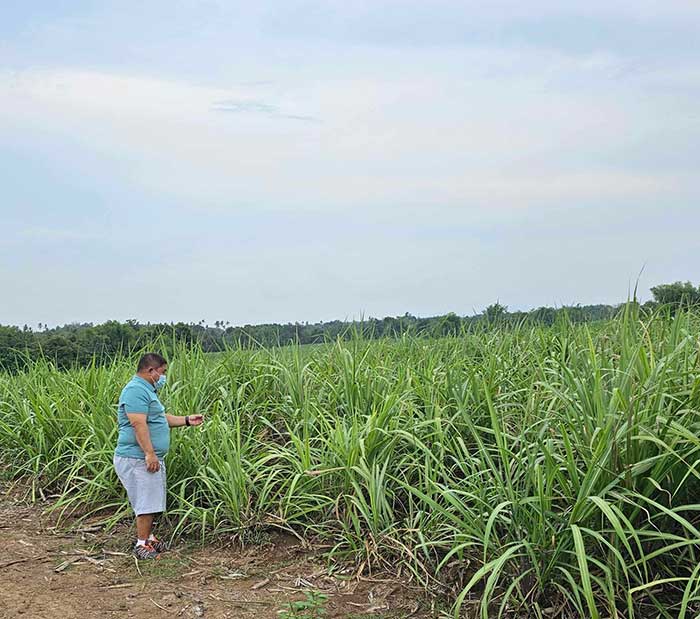
By Dolly Yasa
BACOLOD CITY – The Sugar Regulatory Administration (SRA) reported that volcanic ash from Kanlaon Volcano’s eruption Monday night has raised the acidity levels in sugar cane leaves and soil in affected areas.
The pH level, which measures acidity, showed a 4.14 pH in sugar cane leaves and 5.06 pH in the soil the morning after the ash fall. These results indicate increased acidity compared to the 6.48 pH level of the soil tested last week, according to SRA Administrator Pablo Luis Azcona in a press statement Wednesday.
“A pH level of 7 is neutral, but years of tilling sugar fields have affected our soil. The 6.48 pH result last week was ideal. With the current results after the ash fall, if the acidity is not washed out by rain, we will need long-term soil rejuvenation to restore the ideal state,” Azcona said.
He added that it is too early to determine the extent of damage to crops since it has been raining in the affected areas, which may dilute the acidity.
A report from the SRA’s Research and Development arm, which conducted testing at the La Granja Research Station in La Carlota on Tuesday, said that volcanic ash can cause physical damage to leaves, reducing their photosynthesis capability, and biological and chemical disruptions to the soil, potentially leading to reduced yield.
Long-term effects on sugar crops could include nutrient imbalance, soil compaction and erosion, and chemical leaching, which may further lower soil pH levels.
The SRA team was accompanied by researchers from the Japan International Research Center for Agricultural Sciences (JIRCAS), who are in town for long-term research cooperation and to collect ash samples.
About 23,000 hectares in four sugar mill districts may have been affected by the eruption.
Azcona said the SRA will continue monitoring pH recovery and necessary actions, assigning field personnel, including SRA Board Member David Sanson, to visit affected areas and coordinate with farmers.
The research team noted that volcanic eruptions can significantly impact agricultural productivity, as seen with the 1991 eruption of Mt. Pinatubo and the 2010 eruption of Eyjafjallajökull in Iceland, which disrupted sugarcane farming in parts of Europe.
Mitigation measures recommended if ash fall continues include using cover crops, washing plants and soil with irrigation, and applying lime or organic matter to neutralize soil pH changes caused by the ash fall.
In the long run, volcanic ash can benefit sugar farmers by enriching soil with minerals and nutrients such as potassium, phosphorus, and trace elements, enhancing soil fertility and improving crop yields.
The fine particles in volcanic ash can also improve soil texture and water retention, aiding root growth and reducing the need for frequent irrigation.
Additionally, volcanic ash can act as a natural pesticide, creating a physical barrier that deters pests and disrupts their life cycles, reducing the need for chemical interventions.
Meanwhile, the SRA will assist the Department of Environment and Natural Resources (DENR) in ambient air monitoring in affected areas.
In a letter to the SRA, DENR Assistant Division Chief Cliff Jefferson Escobar mentioned that they have equipment to monitor particulate matter in ambient air at two stations in La Carlota City and La Castellana.
They requested the SRA’s help to monitor the ambient air in Bacolod, where sulfur odors were detected on the night of the eruption.




















